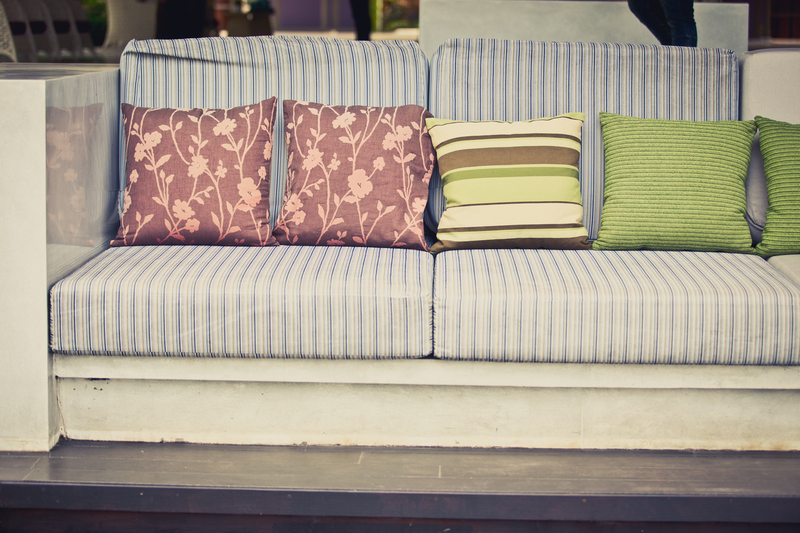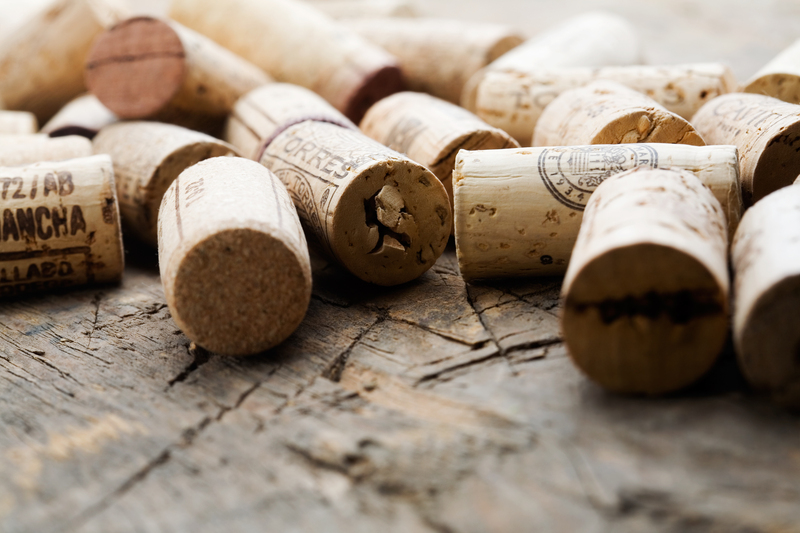Making Your Kitchen Greener by Recycling Old Cookware
Is your kitchen filled with scratched nonstick pans, mismatched lids, or rusted baking sheets? If so, you're not alone. When it comes to upgrading our kitchens, many of us wonder what to do with old pots and pans we've outgrown. The answer lies in making your kitchen greener by recycling old cookware. This eco-friendly approach not only helps the planet but also declutters your home and can even support your local community.

Why Should You Recycle Old Cookware?
Recycling is about more than tossing old cans in the blue bin. Your kitchen is packed with items that can - and should - be recycled. Cookware is no exception. By recycling old cookware, you:
- Reduce landfill waste: Metal cookware takes decades to decompose in landfills.
- Conserve natural resources: Recycling cookware reduces the need to mine new metals and materials.
- Lower greenhouse emissions: Reprocessing metal cookware takes less energy than creating new products from raw ores.
- Support the circular economy: Your donated or recycled cookware can be reused or made into new products.
- Declutter consciously: Creating space at home while making a difference for the planet.
The Environmental Impact of Throwing Away Old Pots and Pans
Each year, millions of tons of metal and other materials are dumped in landfills, much from household goods like cookware. Landfills are not designed to handle non-biodegradable items like metal pots, ceramic-coated pans, and glass lids, resulting in:
- Metal corrosion and leaching of chemicals into soil and water
- Increased landfill size and greenhouse gas emissions
- Loss of valuable, reusable resources
_Consciously recycling your old cookware is a simple, effective way to offset these negative impacts and contribute to a greener planet._
Understanding What Cookware Can Be Recycled
Types of Cookware Most Commonly Recycled
Most frequently, kitchens contain several types of recyclable cookware:
- Stainless steel pots and pans
- Aluminum cookware and bakeware
- Copper bottomed pans
- Cast iron skillets (with or without seasoning)
- Enamel-coated metal cookware
- Glass lids and bakeware (some restrictions apply)
These kitchen items are generally accepted at local recycling centers or scrap metal facilities. However, it's important to check with your local recycler for their specific guidelines.
Cookware That May Not Be Recyclable Curbside
Not all old cookware can be tossed in your curbside bin:
- Nonstick or Teflon-coated pans: Most curbside programs do not accept these due to chemical coatings.
- Cookware with plastic handles or glass covers: These may need to be separated or removed.
- Ceramic cookware and stoneware: Typically, these are not recyclable with metals but may be repurposed.
_Before recycling, always remove any plastic, rubber, or wooden components from your cookware, and check with your recycling facility about nonstick or specialty coatings._
Practical Ways to Recycle Old Pots and Pans
1. Donate Usable Cookware
If your old cookware is still in good working condition, the greenest solution is to donate it:
- Local thrift stores and secondhand shops
- Charity organizations like Salvation Army, Goodwill, or Habitat for Humanity
- Shelters, soup kitchens, or community kitchens
- Local Buy Nothing or Freecycle groups
Tip: Clean and sanitize cookware before donation for maximum usefulness.
2. Use Scrap Metal Facilities
For cookware that's too worn for donation, scrap metal recycling is ideal. Most metal pots and pans--even those with some rust or missing non-metal parts--can be accepted by scrap yards. Here's how:
- Remove any non-metal parts, like plastic handles or glass lids. (Recycle glass separately if accepted.)
- Clean off kitchen residues, grease, or debris.
- Contact the facility to ensure they accept your type of metal.
- Drop off items and recycle responsibly!
3. Check Out Manufacturer Take-back Programs
Some cookware brands and retailers offer recycling programs for old cookware. For example:
- Calphalon: Their ReNew program allows you to mail in old pots and pans for recycling when you buy new ones.
- GreenPan: Periodically offers recycling incentives for nonstick cookware.
- Other retailers: Check with Bed Bath & Beyond, Williams Sonoma, or Sur la Table for in-store recycling opportunities as part of special events.
Ask the manufacturer or visit their website to see if a take-back program exists for your brand of cookware.
4. Upcycling Old Cookware Creatively
Feeling crafty? Repurposing or upcycling old cookware is a fun way to keep items out of the landfill and decorate your home or garden. Some creative ideas include:
- Turn a colander into a hanging planter for herbs or flowers.
- Use an old skillet as a rustic serving tray for barbecues.
- Mount muffin tins or baking sheets on the wall for magnetic spice storage.
- Paint and repurpose small pots as desk organizers.
- Transform large pans into bird baths or garden decor.
_The possibilities are endless, and you'll reduce waste while adding character to your space!_
Increasing the Lifespan of Your Green Kitchenware
Once you've cleared out old items and replaced them, it's important to care for your new, eco-friendly cookware to further reduce your environmental impact:
- Choose high-quality, durable products to minimize replacement.
- Opt for materials that are recyclable, such as stainless steel, cast iron, or 100% aluminum.
- Use gentle cleaning methods to avoid scratching and wearing out coatings.
- Dry thoroughly to prevent rust and extend lifespan.
- Consider products with warranties or lifetime guarantees, reducing future waste.
Maintaining a conscious kitchen is about maximizing the usefulness of every item and responsibly disposing of it when the time comes.
The Role of Responsible Shopping in Creating a Greener Kitchen
Buying the Right Green Cookware
The best way to minimize waste is to choose sustainable cookware from the start. Look for:
- Recycled-content cookware: Some brands offer pots and pans made from recycled metals.
- Recyclable packaging: Avoid unnecessary plastic packaging when purchasing new cookware.
- BPA-free and toxin-free coatings: Safer for your health and the environment.
- Cookware with replaceable parts: Handles, lids, and nonstick coatings that can be swapped out instead of tossing the whole pan.
Supporting eco-conscious brands and retailers creates demand for greener options, making it easier for everyone to build a sustainable kitchen.

Frequently Asked Questions About Recycling Cookware
Can I Recycle Nonstick Pans?
Most curbside programs do not accept nonstick cookware because the chemical coatings complicate recycling. However, they can often be taken to scrap metal recyclers after you remove any plastic or silicone parts. If the nonstick coating is severely worn, the metal base can sometimes still be processed.
What Do I Do with Broken Glass Lids?
Glass lids usually cannot go in your glass bottle and jar recycling bins due to their different melting points and additives. Some local centers accept them as bulk glass or mixed recycling; otherwise, consider upcycling or disposing of them in designated glass bins.
How Can I Tell If My Cookware Is Worth Recycling?
- Check for a recycling symbol on the bottom.
- Test with a magnet: If it sticks, it's likely steel (recyclable).
- If it's heavy and metallic, most scrap yards will accept it.
- Ask your local recycling center for advice.
Summary: Small Changes, Big Impact
By making your kitchen greener by recycling old cookware, you participate in a positive cycle that benefits the environment, community, and your own home. Each pot, pan, or baking sheet diverted from the landfill is one less item polluting the planet and one more step towards a sustainable future.
- Donate usable items to extend their life.
- Recycle metal cookware at a scrap metal facility.
- Repurpose items for creative home and garden uses.
- Buy wisely when replacing cookware, prioritizing durability and recyclability.
Making these conscious choices means you're helping to create a healthier kitchen, a cleaner planet, and a greener legacy for generations to come.
Ready to transform your kitchen? Start today by sorting through your old cookware and discovering the many options for sustainable, planet-friendly recycling!
